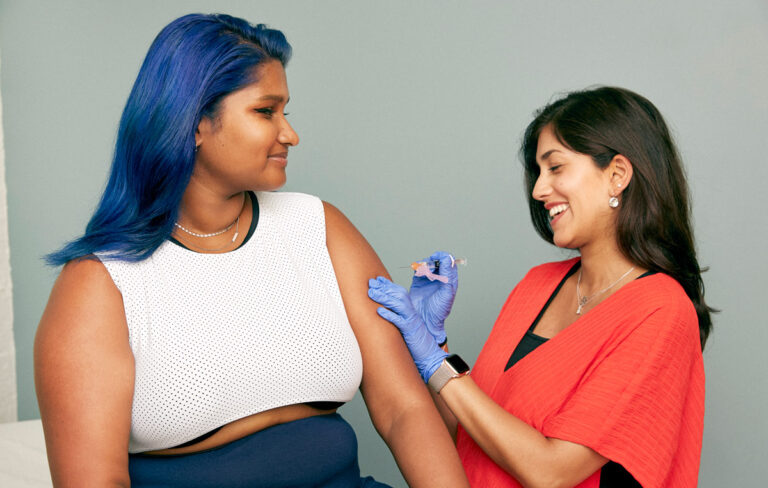Anti-vaxxer propaganda spreads in Asia, putting millions at risk

“I’ve read a lot of posts on Facebook about how many died in other countries because of vaccines, and how that’s being concealed,” said Gerry Casida, a 43-year-old construction worker from Manila, Philippines in an interview with Bloomberg. “My mom also consulted a folk healer, who said the vaccines could affect my heart,” he added.
In Southeast Asia, along with Casida, and despite the region’s recent struggle with its many virus hotspots, millions of people are delaying inoculation or just saying no, swayed by disinformation on social media from both local sources as well anti-vaccination movements in the US.
Those false—and false is the key word here—claims are fueling vaccine hesitancy in some pockets of the region, undermining efforts to immunise some of the most vulnerable people in Asia and end a pandemic that has stalled the world, along with its economy.
“Despite some of the highest rates of new cases in the world, recent surveys show vaccine resistance is prevalent in the region,” Bloomberg noted. According to polling company Social Weather Stations (SWS), in the Philippines, 68 per cent of people are either uncertain or unwilling to take a COVID-19 shot. A third of Thais have doubts or refuse to be vaccinated, according to a poll shared by the Bangkok Post, while a separate survey in Indonesia showed that nearly a fifth of the country’s population were hesitant.
So far, less than 10 per cent of the population in Thailand and the Philippines have received even one shot. In countries already struggling with limited supplies, anti-vaccination propaganda is an additional reason for such small numbers.
“It is a polluted media landscape,” Melissa Fleming, the United Nations’ under-secretary-general for global communications, said at a virtual forum in May. “This infodemic has shifted now, and the focus is misinformation on vaccines. It’s about instilling fear in people.”
More than 86 per cent of the Philippines’ population is Roman Catholic, with 6 per cent belonging to various nationalised Christian cults, and another 2 per cent belonging to well over 100 Protestant denominations. In other words, it is a heavily Catholic country, and this plays a part in its current vulnerability to anti-vaxxer misinformation.
Among many Facebook discussion groups focused on anti-vaccination theories trawled by Bloomberg, one video in the local Filipino language claimed COVID-19 shots will brand people with the “mark of the beast,” alluding to the Antichrist in Christian eschatology. It got more than a thousand views. The video, along with many other coronavirus-related propaganda, was originally shared online by US evangelical Christian groups, which then filtered across through church and family networks.
Another English language video with hundreds of views said the vaccine makes recipients magnetic. Meanwhile, in Malaysia, misinformation ranging from exaggerated risks to life and body organs to genetic alteration are spreading on the Facebook-owned messaging service WhatsApp. Many of them twist and amplify arguments made by US politicians and also Michael Yeadon, a former Pfizer scientist and a COVID-vaccine sceptic who’s now become an icon for anti-vaxxers.
Other popular conspiracy theories being spread on social platforms across the region include a claim that microchips in COVID-19 vaccines are being used to collect biometric data, a false theory that originated in the US and was previously linked to Bill Gates.
For governments keen to get as much as 80 per cent of their populations protected against the deadly virus, the resistance is challenging to say the least. As most countries in Southeast Asia struggle to contain the rise in outbreaks driven by more transmissible variants as well as a lagging vaccine rollout because of shortages after rich nations dominated stock, the last thing they need is for the public to doubt the safety of vaccines.
“Even in Singapore, which has largely contained the spread of the virus, the young and educated succumb to fake news,” said Leong Hoe Nam, an infectious disease physician at Singapore’s Mount Elizabeth Novena Hospital, to Bloomberg.
But there’s another major reason for hesitancy—with wealthier Western nations getting the super-effective mRNA vaccines, poorer countries are having to contend with limited supplies and fewer available brands. When a country offers a choice of only one vaccine, many people want to wait until they can get a higher-efficacy shot. And it’s almost understandable, as for some nations, specific vaccines helped them exit the pandemic faster than others.
Of course, educating vaccine recipients and even medical practitioners is the best tool for fighting hesitancy. Many also add that offering alluring prizes in exchange can also help. And as we’ve seen in other countries, it works—China had a girl band and the US offered free Krispy Kreme doughnuts and pre-rolled joints.
A district in northern Thailand started raffling off cows in mid-June as an incentive. In rural Indonesia, vaccinated residents got free chickens, while a city in the Philippines is giving away a house. But in the face of online misinformation, can a dozen cows, chickens and a single house win?





